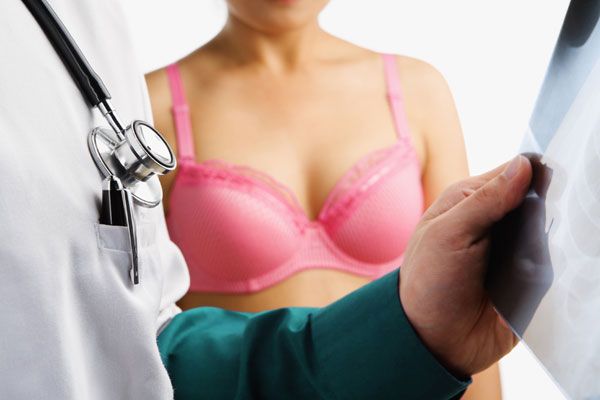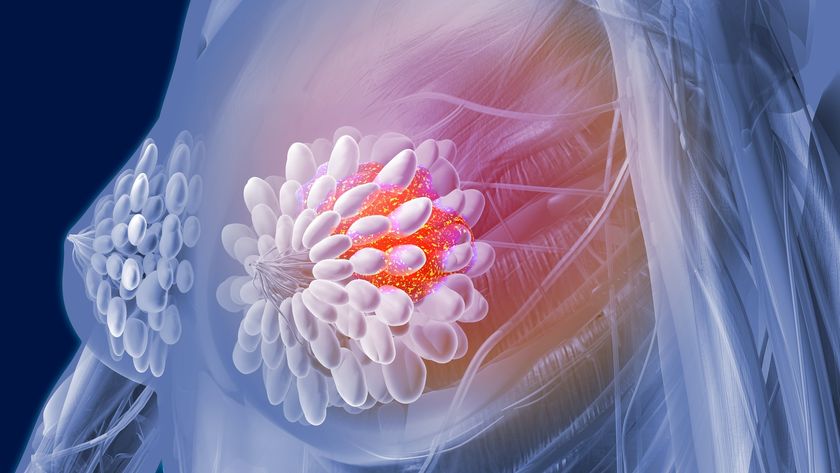High-Fat Dairy May Lower Breast Cancer Survival

Breast cancer patients who eat a lot of high-fat dairy foods may be at an increased risk of dying, according to a new study.
Over the 12-year study, nearly 12 percent of women with breast cancer who ate more than one serving daily of high-fat dairy products died from their cancer, whereas about 1 percent of those who ate less than a half-serving daily died from the disease. In dairy products, female hormones such as estrogen are found primarily in the fat.
For women with breast cancer, "If you're consuming a lot of high-fat diary — whole milk or full-fat cheese — it would be prudent to shift to lower-fat option," said study researcher Candyce H. Kroenke, a staff scientist at Kaiser Permanente in Oakland, Calif.
Eating more low-fat dairy did not increase women's risk of dying, the researchers said. Women in the study who ate more than one serving daily of low-fat dairy were no more likely to die than those who ate less than half a serving daily.
The new study cannot speak to whether eating a lot of high-fat dairy products may contribute to women developing breast cancer in the first place, Kroenke said. But if the hypothesis tested in this study — that the estrogen in dairy fat fuels cancer — is held up in future studies, it would suggest that women who eat a lot of high-fat dairy have a higher risk of developing estrogen receptor-positive breast cancer, she said. This type of breast cancer is the most common type.
The researchers considered 1,900 women in California and Utah who had been diagnosed with early-stage breast cancer between one and four years previously. At the time of their enrollment in the study, the women had completed their treatment, and had not yet shown signs of the cancer's recurrence.
The women completed questionnaires detailing what they ate. Some of the high-fat dairy products the researchers tracked were whole milk, ice cream, and cheeses and yogurts that were not low-fat or non-fat.
Sign up for the Live Science daily newsletter now
Get the world’s most fascinating discoveries delivered straight to your inbox.
During the study, 349 women had their breast cancer recur, and 189 died of the disease. Additionally, 189 women died of other causes.
When the researchers took into account factors that can affect the women's risk of dying — such as the stages of their tumors, smoking and age — they concluded that those who ate more than one serving of high-fat dairy daily were 64 percent more likely to die of any cause, and 49 percent more likely to die of breast cancer than women who ate less than a half-serving.
The researchers said their findings show that it was saturated fat from dairy products in particular, rather than saturated fat in the diet in general, that was linked with breast cancer survival.
Kroenke noted that for the purposes of the study, 2 percent milk was considered a low-fat product. "But there's a fairly substantial amount of fat in it," she said, so it would be worthwhile to compare the effects of consuming it to consuming both lower- and higher-fat products.
The biggest caveat to the study is that it relied on questionnaires, Kroenke said. People generally tend to under-report how much they really eat, so it's possible that the study underestimated the effect of eating a lot of high-fat dairy, she said.
Research into a possible link between dairy consumption and breast cancer has yielded mixed results. But most previous studies didn't separately consider high- and low-fat dairy products, and they may have different effects on cancer, according to the study.
The study is published online today (March 14) in the Journal of the National Cancer Institute.
Pass it on: Dairy products high in fat may prove deadly for breast cancer patients.
This story was provided by MyHealthNewsDaily, a sister site to LiveScience. Follow Karen Rowan @karenjrowan. Follow MyHealthNewsDaily @MyHealth_MHND, Facebook & Google+.












